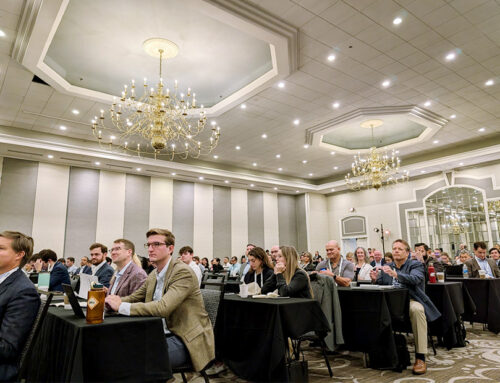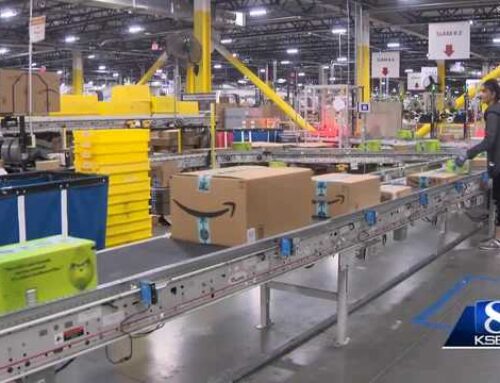European investments in Morocco: Renewable energy at the expense of human rights?
October 30, 2024

Ouarzazate Solar Power Station seen from space on 20 March 2019 by ESA / Copernicus Sentinel-2A . Source: Wikimedia Commons (CC BY-SA 3.0 IGO).
Morocco’s Noor Solar Plant, located near the small town of Ouarzazate in the south-central part of Morocco, is the world’s largest concentrated solar power (CSP) plant and a centerpiece of the country’s push to become a global leader in renewable energy. Supported by European investments, this ambitious project has gained international praise for its potential to reduce carbon emissions and generate sustainable energy.
However, while Morocco’s renewable energy success story is celebrated internationally, there are growing concerns about the social impact of large-scale projects like Noor. Rural communities have been displaced, and workers face harsh conditions. These human rights concerns raise questions about the responsibilities of European investors and the Moroccan government in ensuring that the benefits of renewable energy do not come at the cost of local populations.
Renewable energy ambitions
Morocco has set an ambitious goal of generating 52 percent of its electricity from renewable sources by 2030, with projects like Noor playing a key role. Noor, which began operating in 2016, is part of the Moroccan Solar Plan and covers over 3,000 hectares of land. The plant uses innovative CSP technology, which allows it to store energy and continue producing power even after the sun sets.
The project has attracted billions of dollars in funding from European countries such as Germany, Spain, and France, alongside international financial institutions like the European Investment Bank (EIB). These investments are seen as part of Europe’s broader strategy to combat climate change by supporting renewable energy development in the Global South.
However, while these projects are crucial for reducing carbon emissions, their social impacts on local communities are often overlooked.
Displacement of local communities
One of the most pressing concerns surrounding the Noor Solar Plant is the displacement of local communities. The plant’s vast size required the acquisition of land that had been used for generations by rural communities for farming and grazing. While the Moroccan government claims that it consulted with local populations and provided compensation, a 2019 report by Wuppertal Institut suggests that these processes were not always adequate.
Noor 2 – Ouarzazate Solar Power Station. Photo by Richard Allaway, source: Flickr (CC BY 2.0).
The report indicated that many families affected by the Noor project felt they had little choice in the matter and that the compensation they received did not cover the long-term impacts of losing their land and livelihoods. Similar concerns have been raised by human rights organizations, which argue that more needs to be done to protect the rights of these communities and ensure that development projects benefit everyone, not just investors.
Labor rights and working conditions
In addition to displacement, labor rights violations have been another area of concern. Morocco’s labor laws, though relatively strong on paper, are not always effectively enforced, particularly in large infrastructure projects like Noor. Workers hired by subcontractors to build and maintain the plant have reported facing poor working conditions, including long hours, low pay, and inadequate safety measures.
European investors, while committing to following ethical guidelines, have faced criticism for not ensuring that these standards are upheld in practice. Without stronger enforcement mechanisms, both in Morocco and within the companies themselves, workers continue to be vulnerable to exploitation.
European accountability and ethical investment
European countries and institutions have been key supporters of Morocco’s renewable energy projects, seeing them as essential to achieving global climate goals. Morocco’s geographic proximity to Europe and its potential for energy exports make it a strategic partner in the fight against climate change.
The European Union has frameworks such as the Green Deal and the Sustainable Development Goals (SDGs) that emphasize ethical investment, but reports from civil society organizations suggest that these commitments are not always reflected in the implementation of large-scale projects. Critics argue that European investors should do more to ensure that human rights are respected and that local communities benefit from the economic opportunities created by these investments.
Noor solar power complex beyond Ouarzazate city. Photo by John Englart. Source: Flickr (CC BY-SA 2.0).
In a 2021 statement, Amnesty International called for greater transparency and accountability from European governments and companies involved in renewable energy projects abroad. They emphasized that environmental sustainability must go hand in hand with social responsibility.
Inclusive development
Civil society organizations in Morocco have been increasingly vocal about the social impacts of renewable energy projects. Groups like Germanwatch and the Heinrich Böll Foundation have called for more comprehensive protections for displaced communities and workers involved in large infrastructure projects.
In their 2015 report on the Conférence sur Les Changements Climatiques au Maroc (Conference on Climate Change in Morocco) in Rabat, they highlighted the need for more inclusive development practices that involve local communities from the start and ensure that they are not left behind in the rush to build renewable energy capacity. They argue that projects like Noor should serve as models not only for environmental sustainability but also for social justice.
The need for a just transition
As Morocco continues to expand its renewable energy sector, projects like the Noor Solar Plant are critical for addressing global climate challenges. However, the social costs of these developments cannot be ignored. Displacement, labor rights violations, and a lack of meaningful community involvement highlight the need for a more equitable approach to renewable energy development.
For European investors, the challenge is to ensure that their support for Morocco’s renewable energy ambitions also promotes social responsibility. By holding both themselves and their partners accountable, they can help ensure that the transition to renewable energy is truly sustainable — for the environment, and for the people living in the communities impacted by these projects.
Search
RECENT PRESS RELEASES
Related Post
